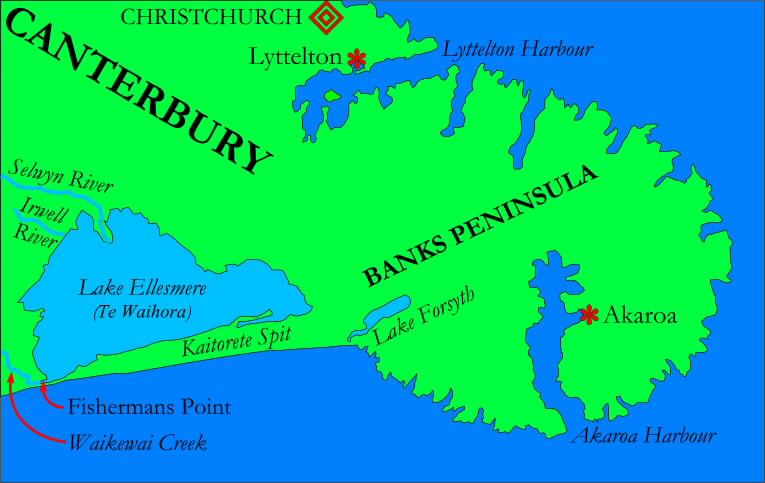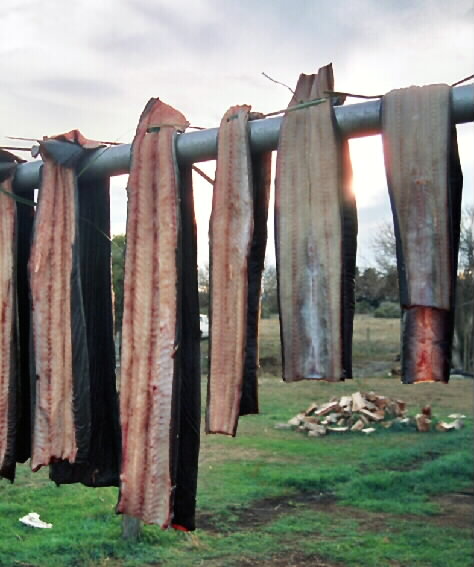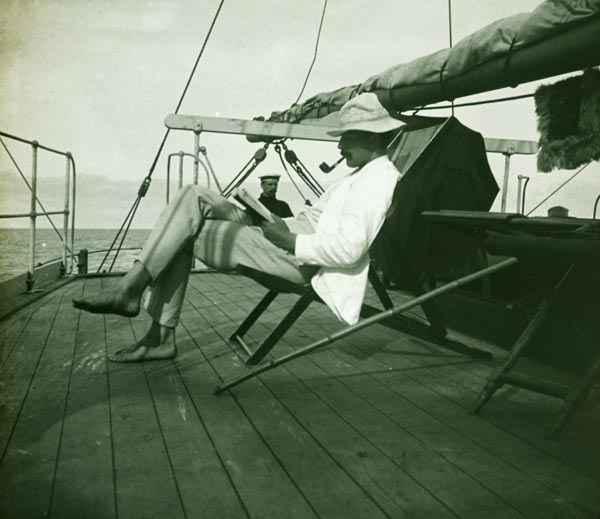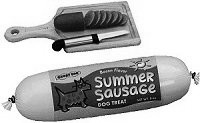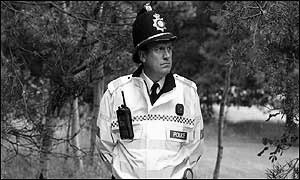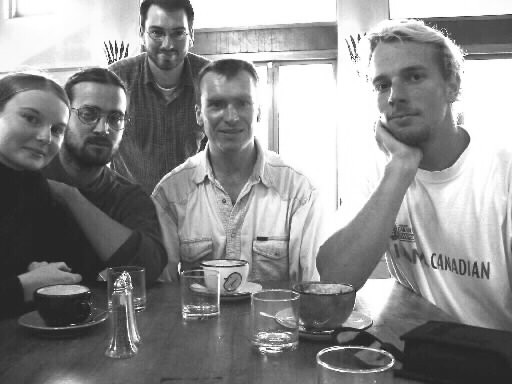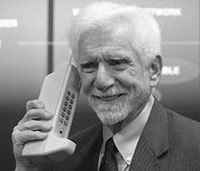Each week we improve our English by learning about the Brown family of England. Over the past year our language skills have improved, and we have learnt much about the culture and mentality of the English-speaking people.
This final part of the series contains five lessons. Take your time and read carefully through each exercise. By the end of the lessons you should be able to host your own English-language television series, or even write a Booker prize-winning novel!
XLVI. Mr. Brown Goes to Court
In England, you are allowed to smoke in the cinema. "Today we shall all go to the cinema," said Mr. Brown.
The Brown family took an omnibus into town. Every Englishman likes to eat fish and chips when he visits the cinema. "Five kilograms of fish and chips, please," said Mr. Brown. "Do you like fish and chips?"
"Yes, I am an Englishman," replied the cinema attendant.
"I too am an Englishman," said Mr. Brown, "but I do not wish to buy fish and chips for Klaus, my daughter's boyfriend."
"Klaus shall buy his own fish and chips," said Gretchen.
Inside the cinema, everyone had a cigarette. Later that afternoon, Mr. Brown went to court.
In England, they do not have a judge. Twelve Englishman decide whether a criminal is innocent or guilty. This is called the jury system. Blind people are not allowed in court. "Mr. Hans Brown is innocent," said the foreman of the jury.
"Now I am free to marry Nanny," said Mr. Brown.
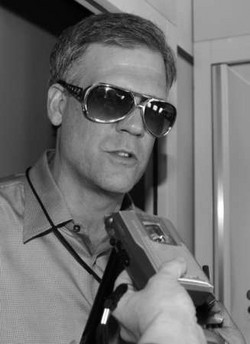
Above: Blind people are not allowed in an English court.
XLVII. A Visit to Buckingham Palace
In England, married couples must sleep in separate bedrooms. "I am now the new Mrs. Brown," said Nanny happily.
"Let us have maypole-dancing," announced Mr. Brown, "as is our usual English custom after a wedding."
"Sexual education is forbidden in British schools," said Nanny as she danced. "Therefore I believe that maypole dancing will bring me children. How ignorant we Englishmen are!"
After the dancing, the Brown family went to visit the Queen at Buckingham Palace.
"In England, we have the class system," said the tour guide. "If you are a king or a queen you are required to marry from the upper (or bottom) class. Englishmen of this class do not like women, therefore the English queen must marry a German like King Albert."
"Was King Albert clever and handsome?" asked Gretchen.
"Yes, and he also produced many offspring," said the tour guide. "He is our greatest monarch. All English people agree on this."
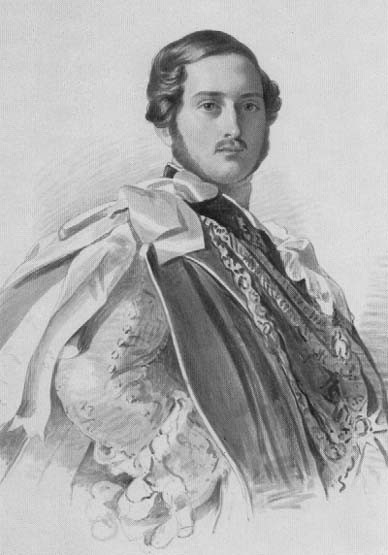
Above: Upper-class Englishmen do not enjoy women.
XLVIII. At Public House
One evening, Klaus took Mr. Brown for a drink at Public House. "Let us sing a rousing drink-song," said Klaus.
"In England we do not sing drink-songs," said Mr. Brown severely. "We Englishmen must play wearisome games such as dominoes, shove-ha'penny, or darts."
"This is correct," said Klaus. "As an Englishman I have known this since childhood."
"In England," said Mr. Brown, "many young boys find employment as chimney-sweeps. If they are orphans they must sleep in a coffin. Every Christmas I send them an orange."
"When I go to the circus I amuse myself by throwing coconuts at a stick," said the barman.
"Yes," said Mr. Brown. "The English mentality is very strange. We permit chicken-fighting, and yet we love all animals. Every Christmas I shoot a fox for dinner."
"Perhaps, after we are drunk, we may address each other by the intimate 'you'," suggested Klaus.
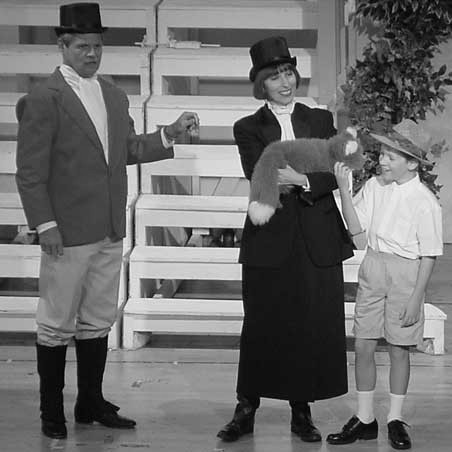
Above: A typical English family prepare for Christmas dinner.
XLIX. At the Doctor
In England, you may visit the dentist for free. "The dentist has drilled holes in my teeth, and filled them with molten lead," said Gretchen.
"This is the way we Englishmen prefer to have our teeth," said Nanny. "When you are older they will fall out, and you shall have false teeth instead."
"Now I must go to the doctor," said Gretchen, "because the dentist's poor hygiene has given me a disease."
In the doctor's waiting area, Gretchen and Nanny sat next to a retarded-looking man.
"Is this person a tramp?" Nanny asked the nurse.
"He is an Englishman from New Zealand," said the nurse. "His back is very painful."
"Despite my urgent condition I shall let him go before me," decided Gretchen. "He is very brave to suffer such a serious condition without complaint."
"Yes, he is the bravest patient we have ever had," said the nurse.

Above: English teeth.
L. At the Seaside
At summer the Brown family took an omnibus to the seaside. "You shall play in the rain all holidays," said Nanny to the children.
"I shall drink beer for supper," said Mr. Brown. "This is a typical English seaside meal."
"In England," said Miss Brown, "it is permissible to build sandcastles taller than 30 centimetres."
"Yes, how disorganized we are," said Gretchen. "Our fellow Englishmen will ruin the beach by building sandcastles of an anti-social size."
"We should move to a properly-organized country like Germany," said Nanny.
"I do not wish to visit Germany," said Klaus. "I do not like the Germans because they are so hard-working. I am a jealous Englishman."
"You have the lazy English way of doing things," said Mr. Brown. But Klaus was silent. He had been poisoned.
"Now we must display him in the front garden for three days," said Mr. Brown.
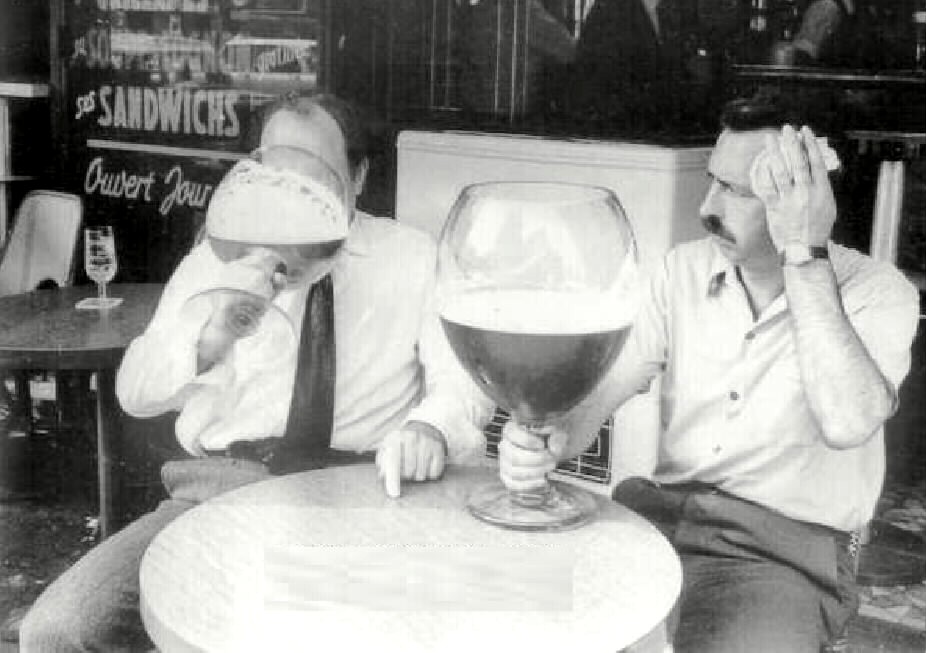
Above: A typical English seaside meal.
ANNOUNCEMENT: English Writing Competition!
Has your English improved? Why not show off your newly acquired language skills by entering our English writing competition! Simply write your own final chapter to 'Learning English with the Browns' and submit it here.
- Entries should be between 140 and 160 words in length.
- Entries should be submitted by Wednesday, 20 December 2006.
- The winning entry (and selected finalists) will be published on Public Address on Friday, 22nd December 2006.
First prize is a brand new copy of Struwwelpeter -- one of English literature's greatest works!
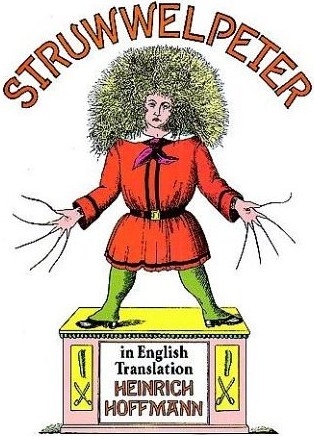
Above: First prize.
